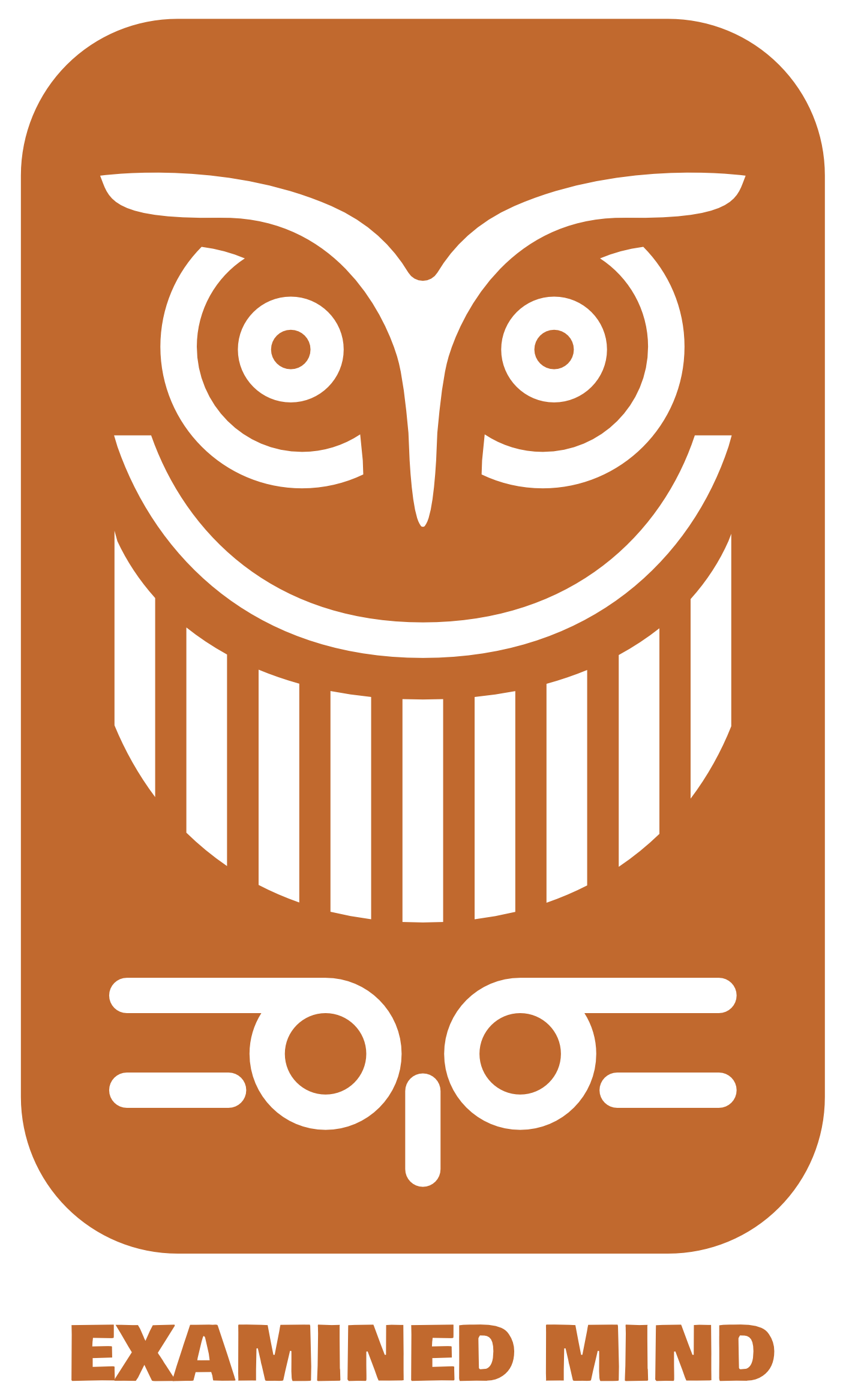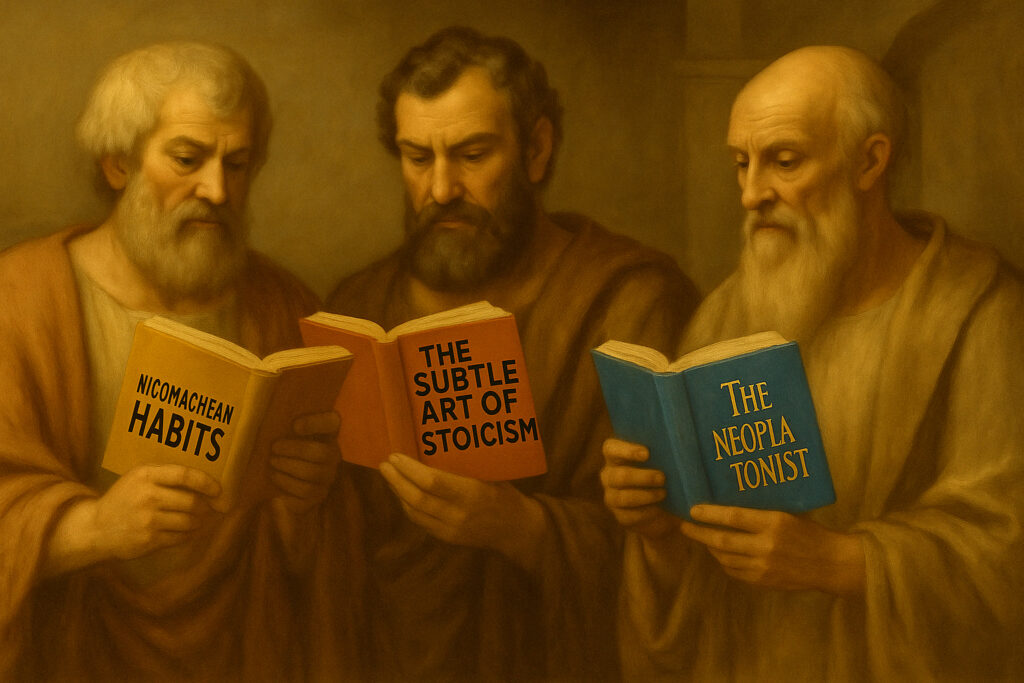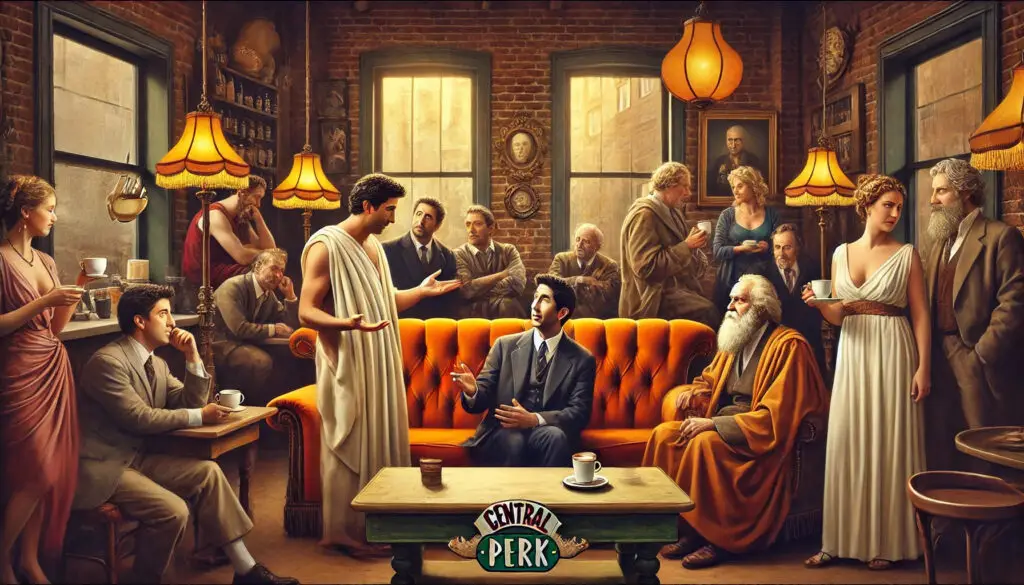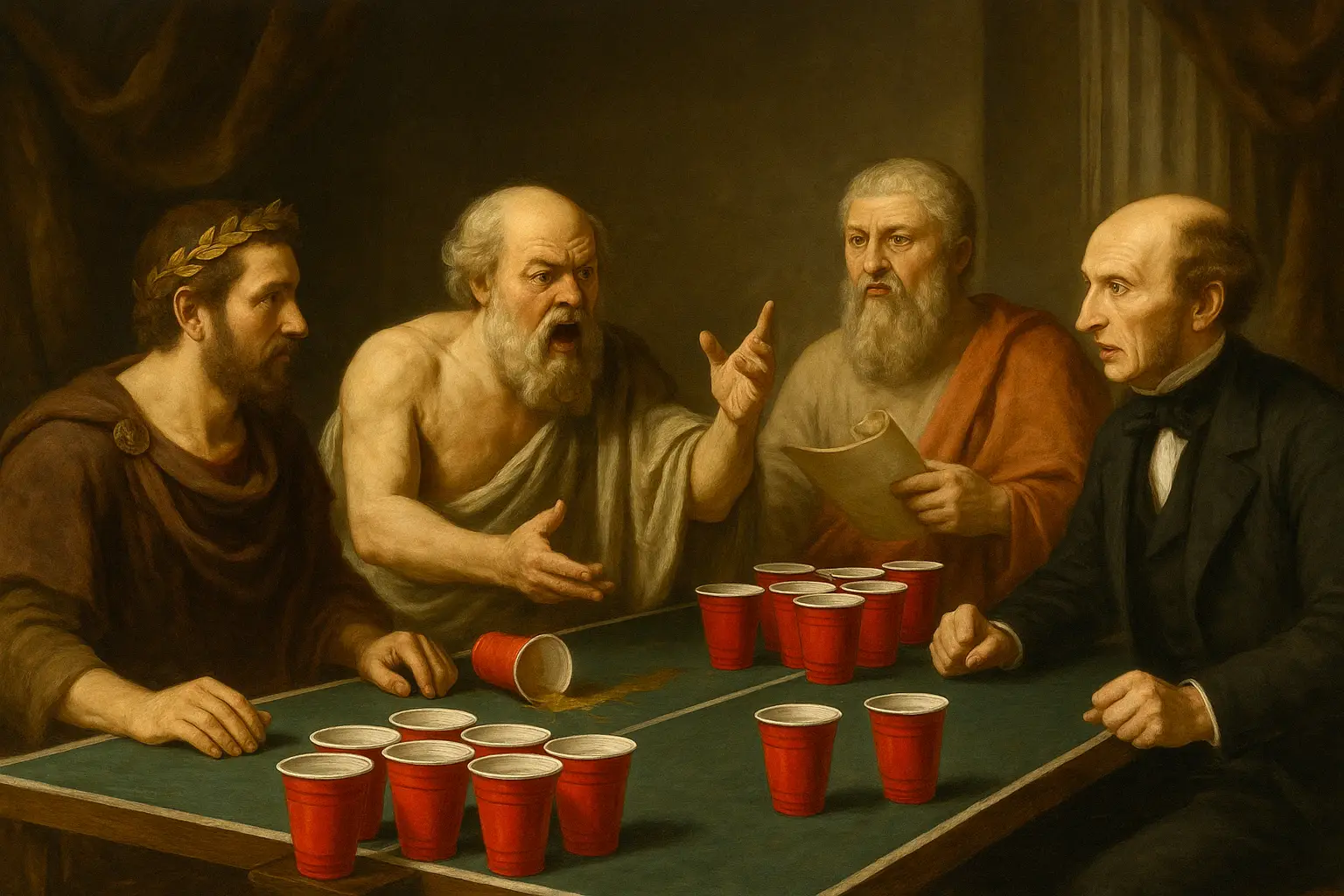Now Reading: Medieval Philosophy: Bright Minds During the Dark Ages
-
01
Medieval Philosophy: Bright Minds During the Dark Ages
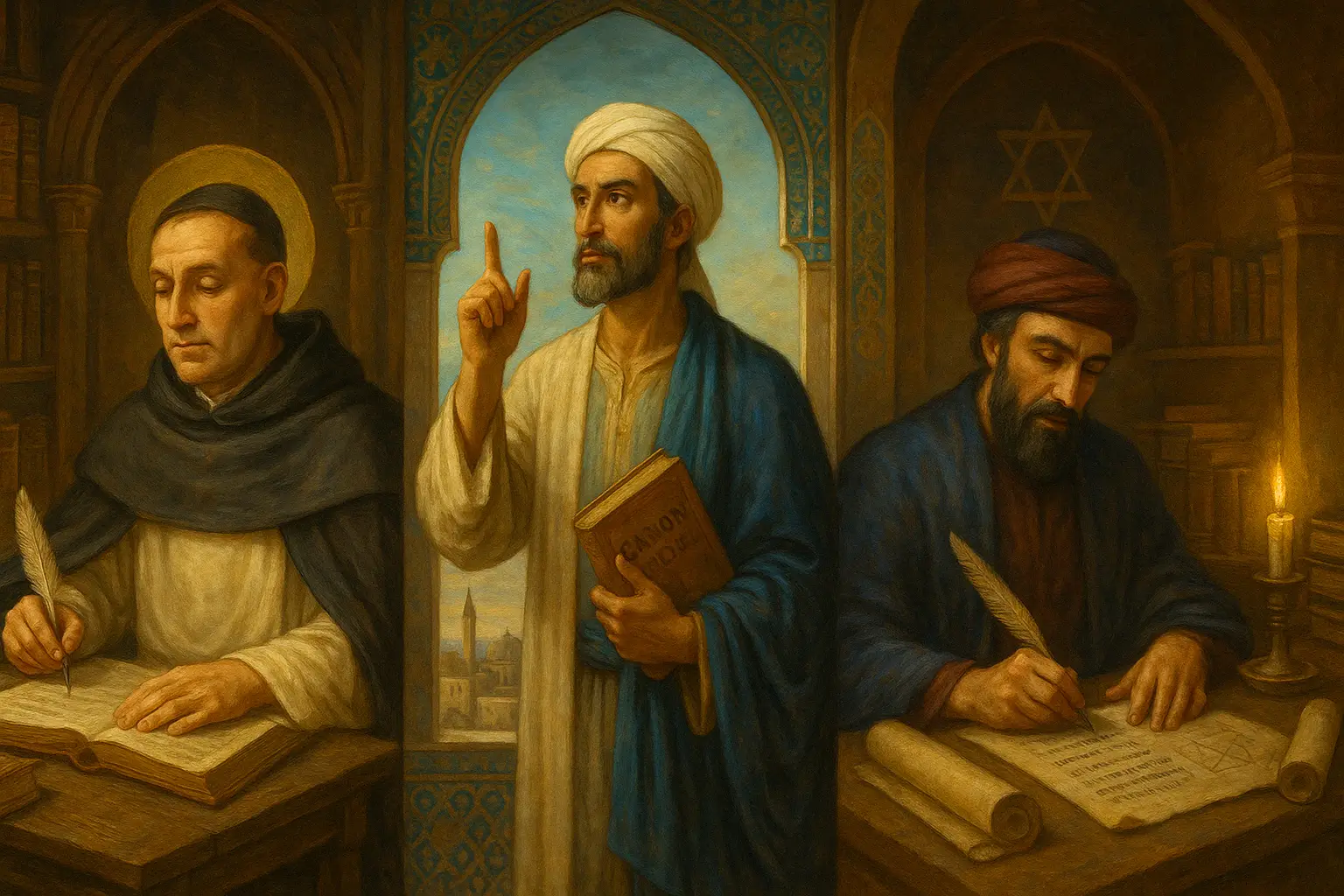
For a lot of people, humanity reached its magnum opus during the peak of the Roman Empire. Prosperity, rich culture, and of course, wise philosophers. And as we saw during TikTok’s ‘Roman Empire’ meme, every man alive today regularly thinks about what could have been if he was born during the glorious days of the Stoic emperor Marcus Aurelius. It’s not so surprising then, that the period after the fall of Rome is seen as an era of decline and a huge step back for humanity. People often associate this time with religion forcing its dogmas and wiping out centuries of ancient wisdom. But were these dark ages as dark as people would have you believe?
The term Dark Ages has stuck around in popular culture, but it’s kind of a historical hit job. Coined during the Renaissance and later embraced by Enlightenment thinkers, it painted the Middle Ages as a thousand-year slump — a cultural blackout between the brilliance of Ancient Greece and Rome and the rebirth of knowledge in modern Europe. But that view’s outdated. Historians today prefer the term Medieval, because while the Roman aqueducts may have crumbled, human curiosity didn’t. Philosophers kept asking big questions — about God, existence, ethics, and how to live well — they just did it in monasteries, mosques, and universities instead of marble forums.
So let’s take a look at three of the most prominent thinkers during the days of kings, knights, and castles. From cathedral libraries in Paris to the courts of Islamic empires and the streets of medieval Córdoba, philosophical thought never stopped — it just changed shape, language, and setting. These thinkers didn’t just preserve ancient ideas, they challenged, expanded, and reimagined them.
A Leap of Faith
As a big fan of philosophy from Ancient Greece, I too had mixed feelings about the Middle Ages. Especially the mindless destruction of knowledge — like burning books — that was demonstrated by the Catholic Church during that time has bothered me. Just think of what knowledge was lost. So you can imagine how surprised I was when I learned of Thomas Aquinas, one of (if not the) most prolific philosophers of the Middle Ages and also… a Catholic priest.
Aquinas wasn’t some dusty monk tucked away copying scrolls — he was a powerhouse of intellect, trained in both theology and philosophy, and deeply influenced by Aristotle. What made him unique wasn’t just that he read the old Greeks — plenty of people did — but that he dared to merge reason and religion. At a time when faith was often seen as unquestionable dogma, Aquinas argued that rational thought could (and should) support belief. His most famous work, the Summa Theologica, wasn’t light bedtime reading; it was a massive attempt to explain, well, everything: God, the universe, morality, law, virtue, and how to live a good life.
What struck me most is how surprisingly practical his thinking is. Aquinas believed that being good isn’t some mystical calling — it’s about habits. He echoed Aristotle here: to become just or brave or kind, you don’t need divine intervention, you just need to do just, brave, and kind things, over and over. He also believed that real freedom doesn’t mean doing whatever you feel like — it means having the strength and clarity to choose what’s good. In a world of dopamine scrolls and “follow your heart” slogans, that’s a refreshingly grounded idea.
What really makes Aquinas stand out in the medieval crowd is that he didn’t just preserve ancient thought — he reimagined it. He showed that religion and philosophy don’t have to be rivals; they can be partners in the same search for truth. And in doing so, he helped keep philosophical inquiry alive at a time when it could’ve easily been lost. The guy was a priest, sure, but he was also a philosopher through and through — proof that even in the so-called Dark Ages, there were some seriously bright minds at work.
Believe… but not in Unicorns
To drive home my point that religion does not always limit free thinking, we’ll take a look at another religious man who was a big fan of Aristotle. Only this time, we’re talking about one of the most influential figures of the Islamic Golden Age: Avicenna, also known as Ibn Sina.
Avicenna wasn’t just a philosopher — he was a walking Renaissance before the Renaissance. Born in what’s now Uzbekistan, he mastered logic, medicine, and metaphysics by his teens, and spent the rest of his life applying that knowledge as a physician, advisor, and prolific writer. Like Aquinas, he took Aristotle seriously. But instead of just preserving Aristotle’s ideas, he reworked them. One of his big insights was that something’s essence (what it is) isn’t the same as its existence (whether it’s actually real). A unicorn, for example, has an essence (we all know what one is), but it doesn’t exist. It sounds simple now, but that distinction shaped centuries of thought about everything from God to human nature.
But where Avicenna might impress most is in his approach to medicine. His Canon of Medicine was the medical textbook in Europe and the Middle East for centuries. And what’s cool is how methodical and grounded it was. He emphasized observation, hygiene, the importance of environment — stuff we now take for granted, but which was radical back then. He was doing evidence-based practice before that was even a term. So even while living under kings and in chaotic times, he shows what it looks like to think clearly and act practically.
What I take from Avicenna — and what makes him relevant today — is that wisdom doesn’t care where or when you’re born. Even in a world that looked very different from ours, he treated learning as a form of freedom. He didn’t retreat into abstract theory or hide behind religious authority. He used the tools he had — books, curiosity, rational thought — to understand life and help people. That’s what practical philosophy should look like. And maybe the best part? He never saw reason and religion as enemies. For him, they were two ways of approaching the same mystery: how to live well in an uncertain world.
Prepare to be Perplexed
You better believe by now (pun intended) that faith played a major role in philosophy during the Middle Ages. So it seems only fitting to finish with yet another religious philosopher. This time, we’re talking about Maimonides — or as his friends and fans called him, the Rambam. Born in Córdoba in 1138, this Jewish thinker lived through exile, cultural upheaval, and personal loss. Still, he managed to leave behind a body of work that continues to shape Jewish law, ethics, and philosophy to this day. Like Aquinas and Avicenna, Maimonides didn’t see a divide between rational thinking and religious life — he saw an opportunity to bridge the gap.
His best-known work, The Guide for the Perplexed, is basically what it says on the tin: a guide for people torn between faith and reason. He was writing for fellow Jews who were struggling with religious teachings that didn’t seem to line up with logic or what they were learning from philosophy. Sound familiar? That tension is still with us today. Maimonides argued that scripture and science aren’t enemies — they just speak different languages. If a sacred text seems irrational, maybe it’s not meant to be taken literally. That alone was a radical idea at the time — and honestly, still kind of is.
But what I find most compelling is how practical his thinking is. Maimonides believed that personal growth is like treating an illness: you diagnose your moral shortcomings and develop habits to fix them. No magic. No mysticism. Just slow, honest work. He also warned against extremes — of emotion, lifestyle, or belief — and encouraged aiming for balance. What he called the “golden path,” we’d now call psychological resilience or emotional regulation. He was the kind of guy who could’ve just as easily written a blog post titled “How to Stay Sane When Life Makes Zero Sense.”
Maimonides proves that deep philosophy doesn’t have to mean abstract rambling or blind belief. It can mean asking uncomfortable questions, making space for complexity, and still living a principled life. His work reminds us that even in uncertain times — maybe especially in uncertain times — the pursuit of wisdom is worth it. And that pursuit doesn’t always look like a toga-clad thinker in an Athenian square. Sometimes, it’s a Jewish doctor in a dusty Cairo study, writing long into the night, trying to help people find clarity when the world feels like a mess.
So, have I managed to shed a little light on the Dark Ages for you?
Diving into the medieval minds of Aquinas, Avicenna, and Maimonides, I discovered something I hadn’t fully appreciated before: wisdom doesn’t care about labels like ‘religious’ or ‘secular.’ These thinkers proved that philosophy isn’t limited to marble statues and sunny forums — it thrives anywhere there’s curiosity and courage to question.
As someone who’s not religious myself, I’ll admit it’s still a bit strange to see faith and philosophy blend so seamlessly. Maybe it feels different because these religions are alive and practiced today, making their connection to philosophy more personal or even challenging. But honestly, seeing how these medieval philosophers used faith not as a barrier but as a starting point for inquiry was eye-opening. They didn’t see doubt as something to silence, but as an essential part of seeking truth.
If philosophy teaches us anything, it’s to remain open — to keep exploring even when ideas seem uncomfortable or unfamiliar. Medieval thinkers remind us that great ideas don’t belong to one era or culture; they belong to anyone who keeps asking questions. Maybe the so-called Dark Ages weren’t so dark after all — perhaps we just needed to adjust our eyes to see their light.
